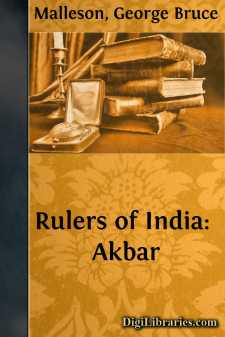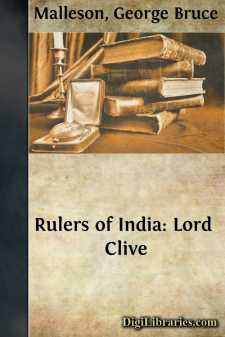Categories
- Antiques & Collectibles 13
- Architecture 36
- Art 48
- Bibles 22
- Biography & Autobiography 813
- Body, Mind & Spirit 138
- Business & Economics 28
- Children's Books 12
- Children's Fiction 9
- Computers 4
- Cooking 94
- Crafts & Hobbies 4
- Drama 346
- Education 46
- Family & Relationships 57
- Fiction 11821
- Games 19
- Gardening 17
- Health & Fitness 34
- History 1377
- House & Home 1
- Humor 147
- Juvenile Fiction 1873
- Juvenile Nonfiction 202
- Language Arts & Disciplines 88
- Law 16
- Literary Collections 686
- Literary Criticism 179
- Mathematics 13
- Medical 41
- Music 40
- Nature 179
- Non-Classifiable 1768
- Performing Arts 7
- Periodicals 1453
- Philosophy 64
- Photography 2
- Poetry 896
- Political Science 203
- Psychology 42
- Reference 154
- Religion 505
- Science 126
- Self-Help 81
- Social Science 81
- Sports & Recreation 34
- Study Aids 3
- Technology & Engineering 59
- Transportation 23
- Travel 463
- True Crime 29
Rulers of India: Akbar
Description:
Excerpt
CHAPTER I
TI crave the indulgence of the reader whilst I explain as briefly as possible the plan upon which I have written this short life of the great sovereign who firmly established the Mughal dynasty in India.
The original conception of such an empire was not Akbar's own. His grandfather, Bábar, had conquered a great portion of India, but during the five years which elapsed between the conquest and his death, Bábar enjoyed but few opportunities of donning the robe of the administrator. By the rivals whom he had overthrown and by the children of the soil, Bábar was alike regarded as a conqueror, and as nothing more. A man of remarkable ability, who had spent all his life in arms, he was really an adventurer, though a brilliant adventurer, who, soaring above his contemporaries in genius, taught in the rough school of adversity, had beheld from his eyrie at Kábul the distracted condition of fertile Hindustán, and had dashed down upon her plains with a force that was irresistible. Such was Bábar, a man greatly in advance of his age, generous, affectionate, lofty in his views, yet, in his connection with Hindustán, but little more than a conqueror. He had no time to think of any other system of administration than the system with which he had been familiar all his life, and which had been the system introduced by his Afghán predecessors into India, the system of governing by means of large camps, each commanded by a general devoted to himself, and each occupying a central position in a province. It is a question whether the central idea of Bábar's policy was not the creation of an empire in Central Asia rather than of an empire in India.
Into this system the welfare of the children of the soil did not enter. Possibly, if Bábar had lived, and had lived in the enjoyment of his great abilities, he might have come to see, as his grandson saw, that such a system was practically unsound; that it was wanting in the great principle of cohesion, of uniting the interests of the conquering and the conquered; that it secured no attachment, and conciliated no prejudices; that it remained, without roots, exposed to all the storms of fortune. We, who know Bábar by his memoirs, in which he unfolds the secrets of his heart, confesses all his faults, and details all his ambitions, may think that he might have done this if he had had the opportunity. But the opportunity was denied to him. The time between the first battle of PánÃpat, which gave him the north-western provinces of India, and his death, was too short to allow him to think of much more than the securing of his conquests, and the adding to them of additional provinces....



